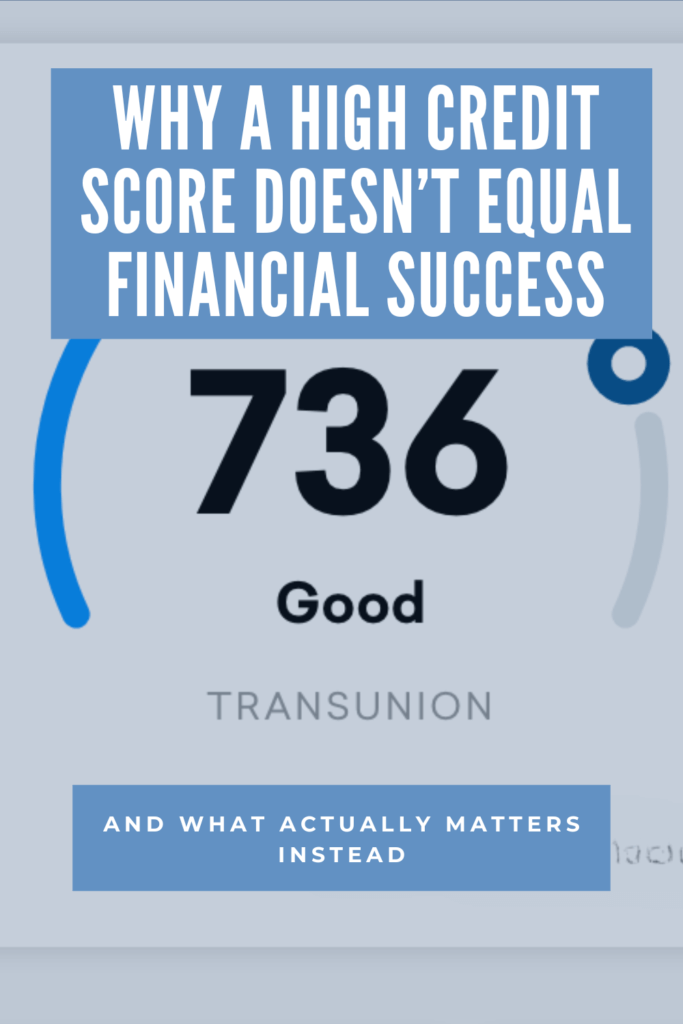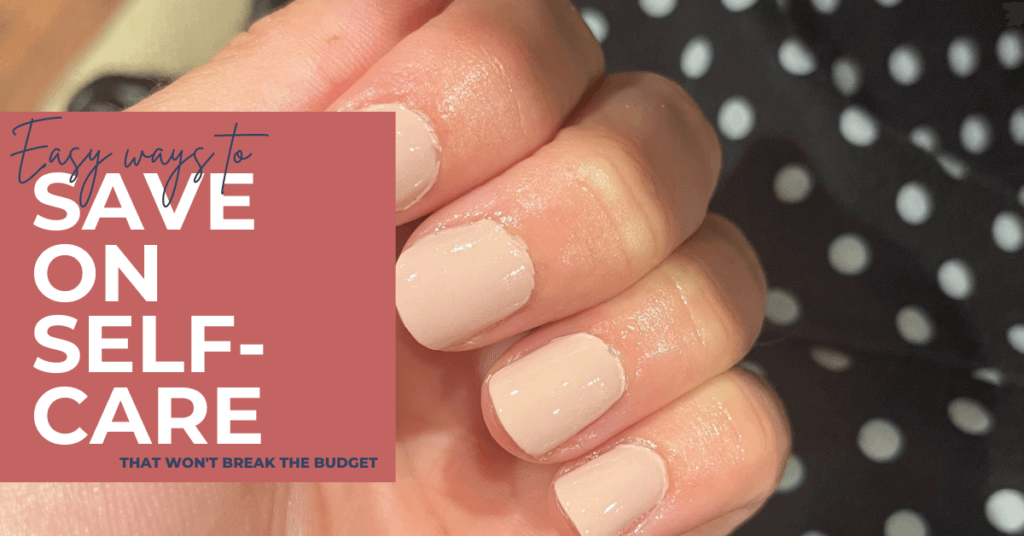
We’ve been taught that a high credit score means financial success, but is that really true? 🤔 While your credit score is important, it often rewards borrowing over true financial stability.
Now, I know that my family is 100% debt-free, and that can come off as if I’m anti-debt. I’m not. I am anti-borrowing money with no plan in place. This means that if you need a new car because yours is completely dead and beyond reasonable to repair, it’s totally okay to take on a loan to buy a new-to-you car. BUT, and here’s the catch…you shouldn’t just go into debt to buy a car without a plan in place for how you’re going to pay back that debt. This is where I think many of us get into trouble – or at least I know it’s where we’ve gotten into trouble before.
We Gotta Think Before We Do
We end up taking on debt because we need to, but we fail to properly plan how we will pay for that debt before we sign on the dotted line. We’ll take a look at the minimum payment and be like, “Oh, I’m good, I can afford that every month.” But we don’t look at the overall balance and how much we will pay in interest. We don’t think about what we could do if we paid off the car early and then took that car payment we made and invested it in our retirement account instead.
So, even though I do believe that your credit score matters – I mean, it’s a lot easier to get approved for an apartment or utilities with a good credit score than it is with a poor one – I don’t think the belief that borrowing to build our credit is good. If we’re going to borrow money, whether through a credit card, car loan, mortgage, or student loan, we need to have a plan in place for paying it back before we sign on the dotted line.
But your credit score is about so much more than borrowing. My 13-year-old is currently building his credit score and has no debt or open lines of credit. How? Because he has a checking account with his name on it. Did you know that your bank account contributes to building your credit profile and score? It does!
What Really Matters
Here’s what really matters when it comes to building your credit:
✅ Paying bills on time – Even if you don’t have debt, on-time payments for rent, utilities, and subscriptions show financial responsibility.
✅ Keeping debt low – A fantastic score doesn’t mean more debt is better. The lower your balances, the healthier your finances because your income isn’t locked into payments. Don’t be fooled into thinking you’ve got to increase your debt to better your finances. That’s a lie.
✅ Building savings – A strong emergency fund is more powerful than a high credit limit. Cash gives you real financial freedom!
Want to boost your financial health beyond just a credit score? Start by reviewing your last 30 days of spending and cut one unnecessary expense today. Then, use the amount of that expense and apply it to either debt or savings (or investments). Every little bit adds up!
But I Don’t Know What My Score Is
Yes, your credit score is important. It would be foolish of me to say something different. As I pointed out earlier, it can be incredibly difficult to get approved for an apartment, utilities, or even decent insurance without a good credit score. But your score isn’t the most important thing…your credit report is even more important. Why? It’s like a detailed report card of what you’ve borrowed, paid back, or haven’t paid back. And you want to make sure that what is on your report is accurate.
I had my identity stolen when I was twelve. Whether it was malicious or a case of putting digits wrong when they filled out their credit apps, I’m not sure, but it was a huge hurdle at 18 years old to figure out. I had to over and over again prove that I was in middle school when these people took out these lines of credit and then didn’t pay them back. My parents had to sign sworn affidavits that they didn’t steal my identity. It was a huge pain.
Monitor, Monitor, Monitor
That’s why I actively monitor my credit report. I use MyFICO and have used Credit Karma as well. I find MyFICO to be more detailed than CK, but either one works and helps me stay on top of what is happening with my credit, even though it is frozen. So if you don’t already know what your credit report says, I encourage you to pull your report from all three Bureaus and go through them to spot any errors. You’ll need to contact the reporting bureau to have the errors corrected. This is important because it’s more common than you might think that there are errors in reporting. My husband had a credit card on his credit report that actually belonged to his dad. My husband and father-in-law have the same initials, and as we found out, their SSNs are only one digit off! So even though this credit card was in good standing, the card didn’t belong to my husband. His name had never been associated with the card, so we had it removed. It’s important to find these types of mistakes and get them fixed ASAP.
Here’s to smarter money moves! 💡






Leave a Reply